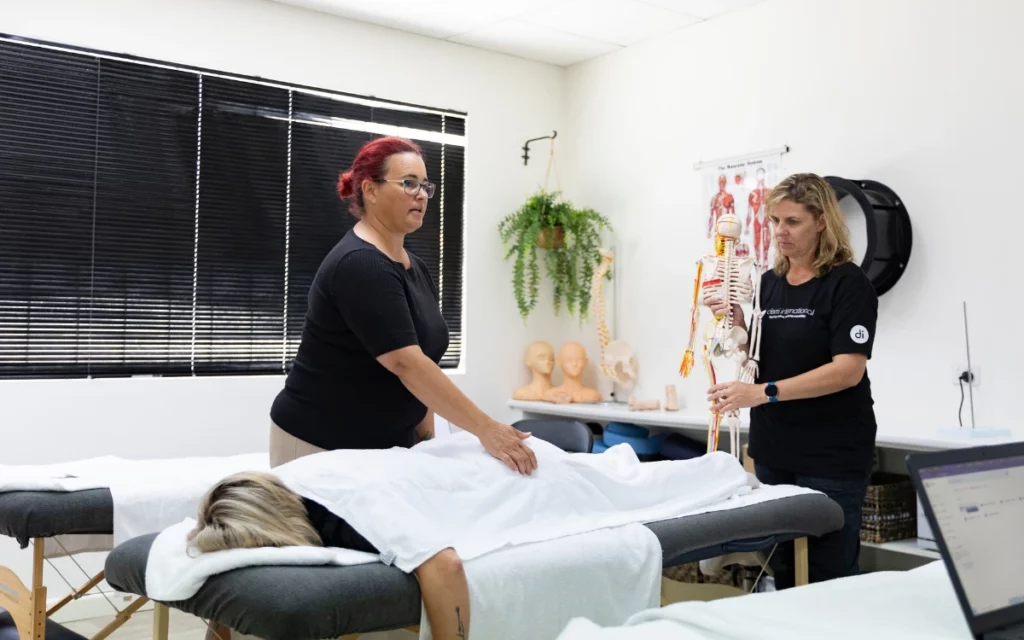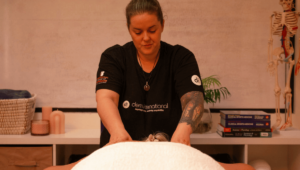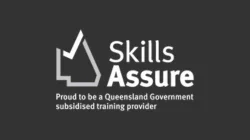Deciding to switch careers or enhance your skills in the massage industry can be an exciting but overwhelming time.
Studying massage therapy online is the first choice for many students who need to balance work and study commitments alongside childcare and other daily responsibilities.
Hundreds of online remedial massage therapy courses are available across Australia that require no formal in-person assessment or training, but going down this path may limit your options moving forward. Let’s dig into why.
Key differences between 100% online and hybrid training courses
A well-designed hybrid course, like the Demi International Diploma of Remedial Massage ([HLT52015) will pair the flexibility of online learning with hands-on learning and the following added benefits, to help you put your best foot forward when it comes time to welcome patients.
Hands-on learning
Not everyone learns in the same way, so enrolling in a course that provides a combination of online and in-person instruction can provide students with a more effective learning experience and improved skill development.
Remedial massage naturally draws in students who are more kinesthetic – meaning hands-on practice is how they retain the information learned. Simply studying blocks of hands-on training is not sufficient for kinesthetic learners. To retain as much information as possible, they require unrestricted access to hands-on training opportunities.
Do you know your learning style? Find out if you’re a kinesthetic learner who would benefit from a blended approach to training.
Hands-on experience
Signing up for an online-only training course can unwittingly place more stress on your shoulders – and not the kind that can be easily massaged away.
Employers often prefer candidates with some in-person experience, especially in massage therapy where hands-on practice is crucial. 100% online training can be problematic for practical courses like remedial massage therapy because students often have to rely on family and friends to practice on.
Finding someone to practice on can be difficult, limiting the practical experience needed to work safely and confidently with clients in the future. The right course will offer regular opportunities to get to work with your hands, under the watchful eye of an experienced trainer.
Diploma of Remedial Massage Therapy students at Demi International learn in a dedicated student clinic, where they can develop their skills across a variety of body types and personalities. Through this process they learn how to assess the body and keep track of the progress, and how to interact with clients more confidently.
Access massage industry memberships
To gain access to the top massage associations in Australia, you’re required to complete a diploma in remedial massage that includes a certain amount of hours of hands-on training. Once you have received your diploma, you can apply for membership or accreditation from any one of these organisations:
- Australian National Therapists Association
- Massage & Myotherapy Australia
- Massage Association of Australia
- Australian Traditional Medicine Society
Members and accredited massage professionals typically have greater access to more resources, professional development and growth opportunities, plus the opportunity to register with Private Health companies to offer rebates. Plus, members can connect with industry experts from all over Australia.
Want to offer private health rebates?
Since more than half of Australians have private health insurance, and because remedial massage is the only type of massage that can be claimed on insurance it makes sense for massage industry professionals to want to have access to this pool of potential clients.
According to Canstar’s database, approximately 88.5% of extras policies cover remedial massage.
In the past, graduates with a remedial massage therapy diploma were automatically eligible for healthcare rebates. Nowadays, each healthcare provider has their own set of requirements. Medibank, for example, requires a minimum of 20% of the course to include on-campus clinical training supervised by a qualified trainer.
To learn more about minimum requirements and other criteria, consult the Association of Massage Therapists guidebook on Information about Health Funds.
It’s important to note that even if you work for a healthcare clinic or day spa that offers rebates, the rebates are tied to you as an individual therapist, not the business as a whole.
The takeaway
Whether you’re embarking on a career change or advancing your skills in the massage therapy industry, it’s important to consider a hybrid training model that balances online and hands-on training, offering an enhanced learning experience, access to crucial industry memberships and private healthcare rebates.







